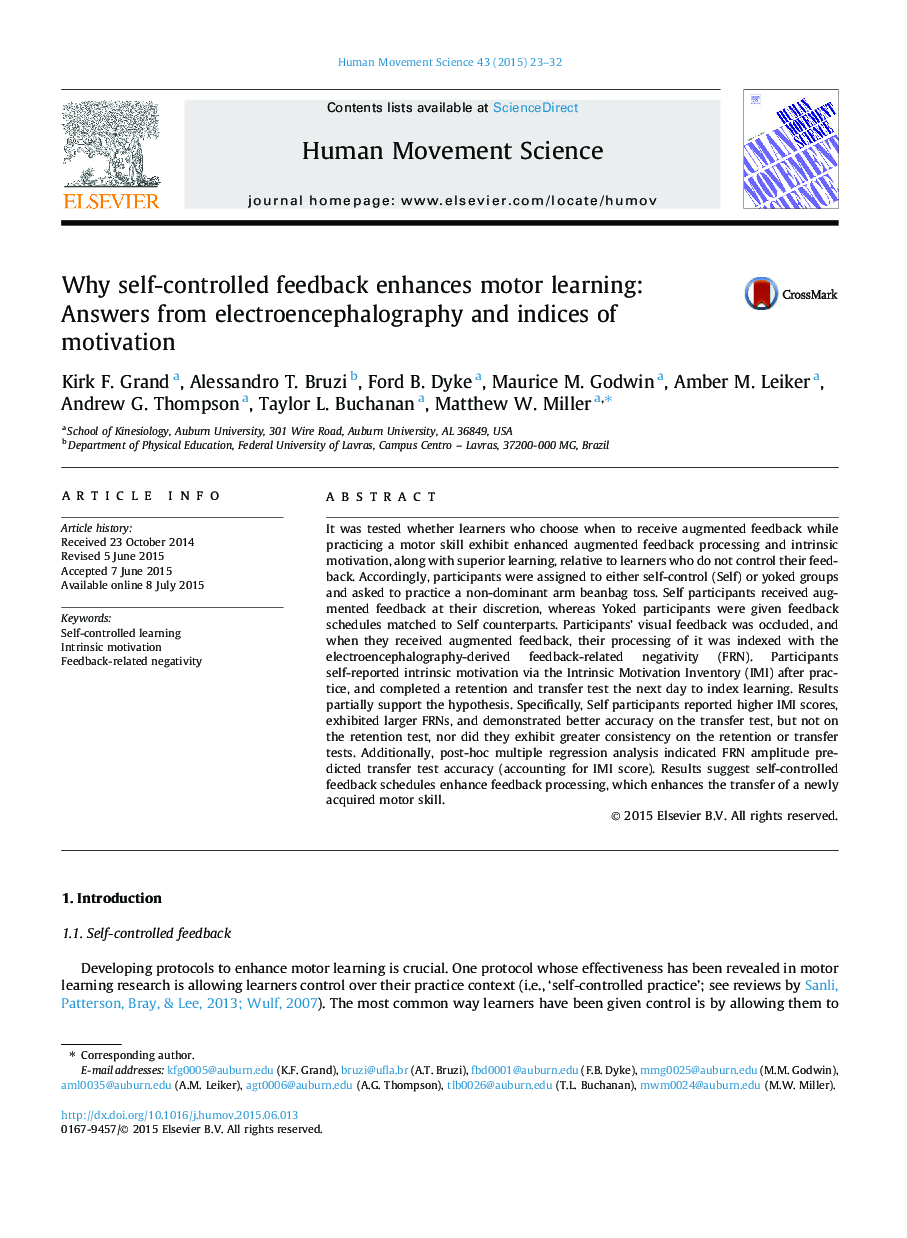| Article ID | Journal | Published Year | Pages | File Type |
|---|---|---|---|---|
| 928260 | Human Movement Science | 2015 | 10 Pages |
•We examined the basis of enhanced learning from self-controlled feedback.•Self-controlled feedback enhanced intrinsic motivation.•Self-controlled feedback enhanced feedback processing.•Intrinsic motivation and feedback processing predicted motor learning.
It was tested whether learners who choose when to receive augmented feedback while practicing a motor skill exhibit enhanced augmented feedback processing and intrinsic motivation, along with superior learning, relative to learners who do not control their feedback. Accordingly, participants were assigned to either self-control (Self) or yoked groups and asked to practice a non-dominant arm beanbag toss. Self participants received augmented feedback at their discretion, whereas Yoked participants were given feedback schedules matched to Self counterparts. Participants’ visual feedback was occluded, and when they received augmented feedback, their processing of it was indexed with the electroencephalography-derived feedback-related negativity (FRN). Participants self-reported intrinsic motivation via the Intrinsic Motivation Inventory (IMI) after practice, and completed a retention and transfer test the next day to index learning. Results partially support the hypothesis. Specifically, Self participants reported higher IMI scores, exhibited larger FRNs, and demonstrated better accuracy on the transfer test, but not on the retention test, nor did they exhibit greater consistency on the retention or transfer tests. Additionally, post-hoc multiple regression analysis indicated FRN amplitude predicted transfer test accuracy (accounting for IMI score). Results suggest self-controlled feedback schedules enhance feedback processing, which enhances the transfer of a newly acquired motor skill.
